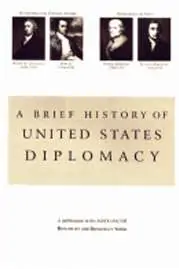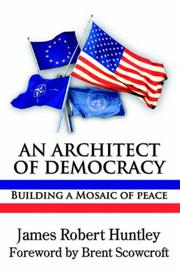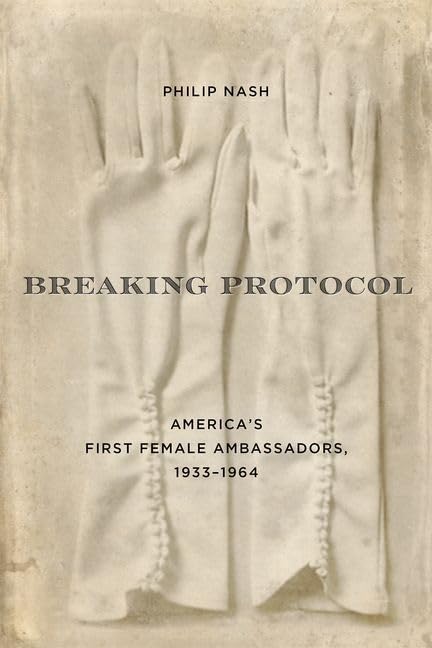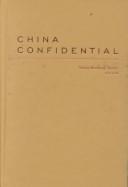
Uncle Sam in Barbary: A Diplomatic History
Series: Diplomats and Diplomacy Author: Parker, Richard B. Category: Diplomats and Diplomacy, Foreign relations Publisher: University Press of Florida (2004) ISBN: 978-0813033440 Pages: 285 Share: More DetailsIn Uncle Sam in Barbary, Richard Parker tells the story of the young American republic’s first hostage crisis, and earliest encounter with Islam, which began in 1785 when Algerine corsairs–the Barbary pirates–captured two U.S. vessels off the coast of Portugal. The situation dragged on until 1796, when the United States paid close to $1 million for peace and to ransom 103 surviving captives from thirteen ships, some having been prisoners in Algiers for eleven years. It also had to pay Algiers an annual tribute of $22,000 until 1812. The 1801–1805 war with the pirate principality of Tripoli, celebrated in the Marine Corps hymn, similarly ended with the United States paying $60,000 for a treaty.
Written from the viewpoint of a diplomatic practitioner who served in and studied the Arab world for fifty years, the book provides the intriguing details of the international diplomacy mobilized to address the crisis. Parker based this diplomatic history on dispatches, personal papers, and official communications, including unpublished British, French, Italian, and Tunisian documents. He puts flesh on the bare bones of the crisis, bringing to life the fate and identity of the unfortunate American captives and the leaders in Algiers, clarifying for the first time the unhelpful roles played by the British and the French. Front page news at the time, the incidents involved a roll call of America’s founding fathers, including George Washington, Thomas Jefferson, John Adams, Benjamin Franklin, James Madison, James Monroe, and Alexander Hamilton. The crisis led to the creation of the U.S. Navy and America’s presence in the Mediterranean, which has continued intermittently to the present.
Lucidly written and abundantly instructive, Uncle Sam in Barbary offers serious lessons about the limitations of force not backed by diplomacy, lessons of continuing relevance to U.S. foreign policy in a region again presenting a major challenge.
Other Books From - Diplomats and Diplomacy
Editorial Reviews
“Finally! Every American student of history, every American diplomat and member of Congress should read this important book. It uncovers a little-known but vitally important chapter in the long relationship between the United States and the Muslim world.”
ROBERT J. ALLISON, Suffolk University
About the author
Parker, Richard B.
The late Richard Bordeaux Parker (1923–2011), a thirty-one-year veteran of the Foreign Service, spoke fluent Arabic and climaxed his career in the 1970s as U.S. ambassador to Algeria, Lebanon, and Morocco. Retiring in 1980, he continued to share his deep...
Read More
 American Ambassadors: A Guide For Aspiring Diplomats
American Ambassadors: A Guide For Aspiring Diplomats  A Brief History of United States Diplomacy
A Brief History of United States Diplomacy  Echoes of a Distant Clarion
Echoes of a Distant Clarion  An Architect of Democracy
An Architect of Democracy  Breaking Protocol: America’s First Female Ambassadors, 1933-1964
Breaking Protocol: America’s First Female Ambassadors, 1933-1964  China’s Relations with Africa: A New Era of Strategic Engagement
China’s Relations with Africa: A New Era of Strategic Engagement  Abroad for Her Country: Tales of a Pioneer Woman Ambassador in the U.S. Foreign Service
Abroad for Her Country: Tales of a Pioneer Woman Ambassador in the U.S. Foreign Service  China Confidential: American Diplomats and Sino-American Relations, 1945-1996
China Confidential: American Diplomats and Sino-American Relations, 1945-1996  African Wars: A Defense Intelligence Perspective
African Wars: A Defense Intelligence Perspective  The October War: A Retrospective
The October War: A Retrospective  Memoirs of a Foreign Service Arabist
Memoirs of a Foreign Service Arabist